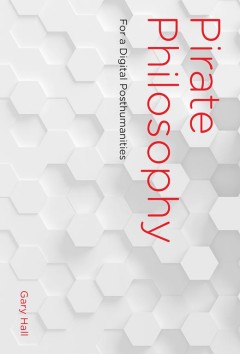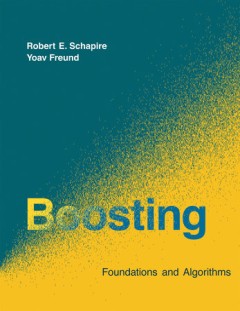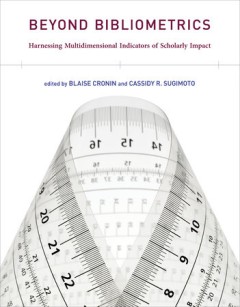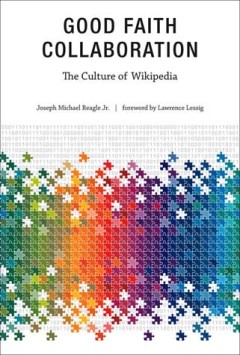Filter by

Higher education ICT integration in Africa: readiness, implementation and tra…
- Edition
- -
- ISBN/ISSN
- 9781003394877
- Collation
- -
- Series Title
- -
- Call Number
- -
- Edition
- -
- ISBN/ISSN
- 9781003394877
- Collation
- -
- Series Title
- -
- Call Number
- -

xxAI - Beyond Explainable AI
Statistical machine learning (ML) has triggered a renaissance of artificial intelligence (AI). While the most successful ML models, including Deep Neural Networks (DNN), have developed better predictivity, they have become increasingly complex, at the expense of human interpretability (correlation vs. causality). The field of explainable AI (xAI) has emerged with the goal of creating tools and …
- Edition
- 1
- ISBN/ISSN
- -
- Collation
- -
- Series Title
- Lecture Notes in Computer Science
- Call Number
- X, 397
Applied Pedagogies for Higher Education : Real World Learning and Innovation …
This open access book critiques real world learning across both the curriculum and extracurricular activities. Drawing on disciplines as diverse as business, health, fashion, sociology and geography, the editors and authors employ a cross-disciplinary approach to examine how this concept is being applied in higher education. Divided into three parts, the authors and contributors analyse broader…
- Edition
- -
- ISBN/ISSN
- 978-3-030-46953-5
- Collation
- -
- Series Title
- -
- Call Number
- -

English as a Medium of Instruction in Higher Education
This book presents the multiple facets of English as a Medium of Instruction (EMI) in higher education across various academic disciplines, an area that is expected to grow constantly in response to the competitive global higher education market. The studies presented were conducted in various EMI classrooms, with data collected from observing and documenting the teaching activities, and from i…
- Edition
- 1
- ISBN/ISSN
- 978-981-10-4645-2
- Collation
- -
- Series Title
- English Language Education
- Call Number
- XIII, 213

Pirate philosophy for a digital posthumanities
How philosophers and theorists can find new models for the creation, publication, and dissemination of knowledge, challenging the received ideas of originality, authorship, and the book.OCLC-licensed vendor bibliographic record.
- Edition
- -
- ISBN/ISSN
- 9780262332217
- Collation
- 1 online resource (xiv, 248 pages).
- Series Title
- -
- Call Number
- -

Machine learners :archaeology of a data practice
Machine learning - programming computers to learn from data - has spread across scientific disciplines, media, entertainment, and government. Medical research, autonomous vehicles, credit transaction processing, computer gaming, recommendation systems, finance, surveillance, and robotics use machine learning. Machine learning devices (sometimes understood as scientific models, sometimes as oper…
- Edition
- -
- ISBN/ISSN
- 9780262342551
- Collation
- 1 online resource (xvi, 252 pages) :illustrations
- Series Title
- -
- Call Number
- -

Fortbildungen für KulturSchule
In diesem Open-Access-Buch gibt eine Evaluationsstudie Auskunft, wie teilnehmende Lehrkräfte Fortbildungen erleben, die auf die KulturSchul-Entwicklung zielen. Welche Perspektiven bauen diese auf? Und welche internen Unterstützungsmaßnahmen trifft die Schule, damit sich die Lernkultur ändern kann? Die Fortbildungsreihen im Landesprogramm «KulturSchule Hessen» legen die Grundlage dafür…
- Edition
- -
- ISBN/ISSN
- 978-3-658-42220-2
- Collation
- XI, 243
- Series Title
- -
- Call Number
- -

Boosting: Foundations and Algorithms
A remarkably rich theory has evolved around boosting, with connections to a range of topics including statistics, game theory, convex optimization, and information geometry. Boosting algorithms have also enjoyed practical success in such fields as biology, vision, and speech processing. At various times in its history, boosting has been perceived as mysterious, controversial, even paradoxical. …
- Edition
- -
- ISBN/ISSN
- 9780262301183
- Collation
- 1 online resource (xv, 526 pages) :illustrations
- Series Title
- -
- Call Number
- -

Beyond bibliometrics :harnessing multidimensional indicators of scholarly impact
Bibliometrics has moved well beyond the mere tracking of bibliographic citations. The web enables new ways to measure scholarly productivity and impact, making available tools and data that can reveal patterns of intellectual activity and impact that were previously invisible: mentions, acknowledgments, endorsements, downloads, recommendations, blog posts, tweets. This book describes recent the…
- Edition
- -
- ISBN/ISSN
- 9780262323284
- Collation
- 1 online resource (viii, 466 pages) :illustrations (some color)
- Series Title
- -
- Call Number
- -

Good Faith Collaboration: The Culture of Wikipedia
Wikipedia, the online encyclopedia, is built by a community - a community of Wikipedians who are expected to "assume good faith" when interacting with one another. In Good Faith Collaboration, Joseph Reagle examines this unique collaborative culture;Wikipedia, says Reagle, is not the first effort to create a freely shared, universal encyclopedia; its early twentieth-century ancestors include Pa…
- Edition
- -
- ISBN/ISSN
- 9780262289719
- Collation
- -
- Series Title
- -
- Call Number
- -
 Computer Science, Information & General Works
Computer Science, Information & General Works  Philosophy & Psychology
Philosophy & Psychology  Religion
Religion  Social Sciences
Social Sciences  Language
Language  Pure Science
Pure Science  Applied Sciences
Applied Sciences  Art & Recreation
Art & Recreation  Literature
Literature  History & Geography
History & Geography